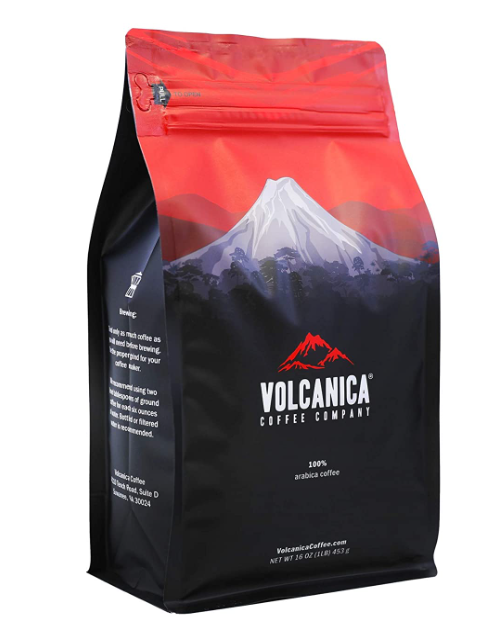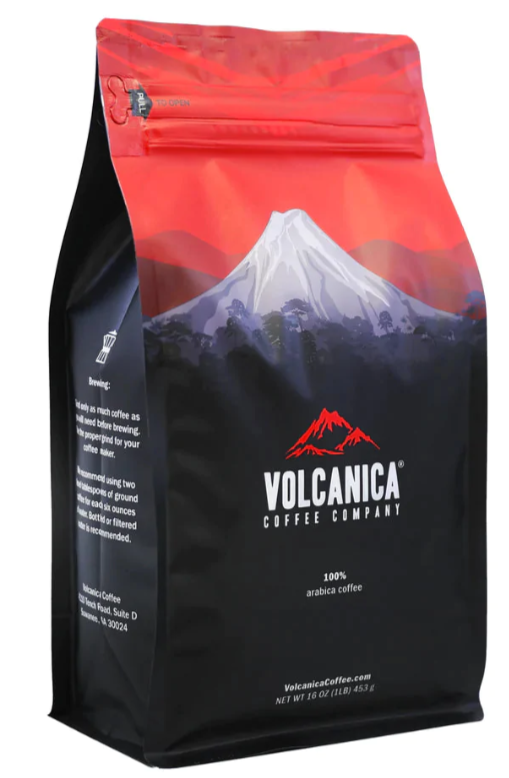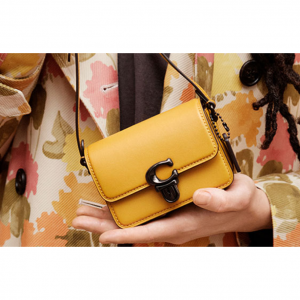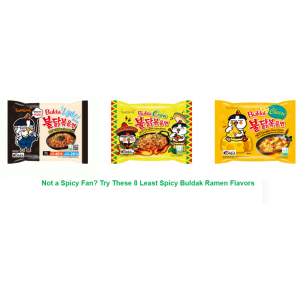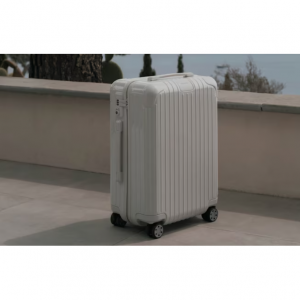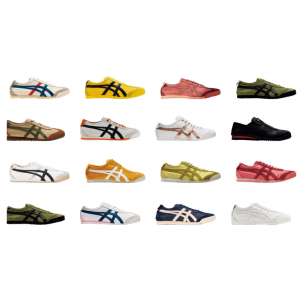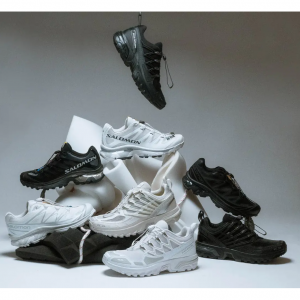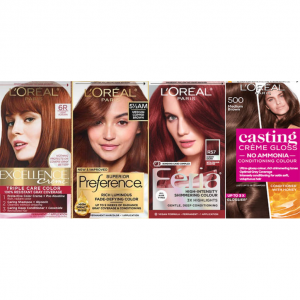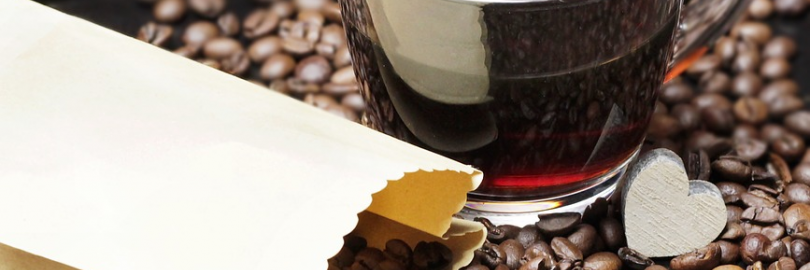
Top 10 Naturally Sweet Coffee Beans in the World 2025
Arabica or Robusta, which coffee is sweeter?
Despite containing less caffeine than Robusta, Arabica beans are often considered superior in taste. Arabica tends to have a smoother, sweeter taste, with flavour notes of chocolate and sugar. Robusta, on the other hand, has a stronger, harsher and more bitter taste, with grainy or rubbery overtones.
Let's first take a look at the main points of this article:
Point 1 Top 5 Places to Produce Naturally Sweet Coffee
Point 2 Top 10 Naturally Sweet Coffee in the World 2025
Point 1 mainly focuses on the geographical profile of sweet coffee, and the characteristics of the naturally sweet coffee beans produced in these regions, how sweet is it? How does it taste? How is the acidity? How is the flavor? Here are some basics.
Point 2 mainly focuses on finding the best and sweetest coffee products that are being sold on the market, if you just want to search for the answers, skip to that section.
Top 5 Places to Produce Naturally Sweet Coffee
The environment in which the coffee tree is grown affects the sweetness of the coffee beans. For example, coffee beans from places like Guatemala, Colombia, Kenya and Ethiopia are known for their sweetness.
#1. place to produce naturally sweet coffee - Panama
One of the places where naturally sweet coffee is produced - Panama
Panama is recognised for producing high-quality coffee that is sought after by roasters, buyers, and competition baristas from around the world.
As an equatorial country located along the “bean belt”, Panama has a pleasant climate that is very conducive to growing the best coffee in the world. Since there are many mountainous regions, the winds and fog that form here cause the fruits to ripen more slowly. While this results in lower productivity, it also results in sweeter coffee and better-developed flavors.
In general, Panamanian coffee is characterized by a sweet taste with many citrus notes of lemon, orange, or bergamot, as well as notes of dark cocoa. However, each variety has different flavors. Therefore, there is no uniform roast that is preferred in this country.
However, lighter roasted beans are very similar to tea. They are characterized by a mild aroma with notes of lemon and a sweet taste. A medium roast, on the other hand, has more caffeine than a light roast, has a more intense taste, and may have a slightly bitter aftertaste on the palate. Europeans prefer this roast, while Asians prefer coffees that are similar to lightly roasted teas.
Where is the most famous coffee-producing region in Panama?
They are the mountainous highlands of the province of Chiriquí, which provide the ideal altitude for the cultivation of Arabica plants. The three main coffee growing areas in Chiriquí are Boquete, Tierras Altas and Renacimiento.
The province is also located along the Central American Volcanic Arc (CAVA), which includes the Volcán Barú, boasting the highest point in the country at 3,474 m.a.s.l.
Perhaps most famously, the mountain town of Boquete is renowned for its quality arabica, thanks in part to its elevation of between 1,000 and 2,800 m.a.s.l.
What is the most famous coffee variety in Panama?
The unique conditions of Panama allow producers to grow many high-quality varieties, including Catuai, Caturra, Maragogype, Pacamara and Mundo Novo, among others. Today, however, Panama is most associated with one variety above all else: Geisha.
Geisha has a cup profile with good sweetness and bright acidity, and often has a fruity and floral aroma.
Although the Geisha variety originates from Ethiopia, it is better known and more representative in Panama.
It started in 2004 when it was featured in the Best of Panama competition and took first place in several categories.
Geisha has also won numerous coffee tasting awards in recent years and has created a high demand for the coffee at auctions.
Geisha coffee (also spelled Gesha) has become popularized worldwide by Panama as a luxury-statement coffee after the varietal was discovered in 2004 in Chiriquí, Panama by way of Costa Rica by Daniel Peterson from Hacienda La Esmeralda.
Geisha is also produced in Guatemala, Honduras, El Salvador, Bolivia, Colombia, and Costa Rica, in addition to Ethiopia and Panama. Year after year, the Panama Geisha coffee varietal keeps skyrocketing in price sold per pound, sparking international headlines and caffeinated buzz reverberating around the globe.
#2. place to produce naturally sweet coffee - Ethiopia
Ethiopia is widely believed to be the birthplace of coffee, and Kaldi's apocryphal story circulates here.
Kaldi was an Ethiopian goat herder who first discovered coffee and its magical benefits around 850 AD.
Legend has it that he discovered his goats eating the coffee fruit off of the trees and dancing wildly. He was so fascinated by these “magic” beans that he brought them home with him.
He was so fascinated by these "magic" beans that he took the cherries to the monastery to share with the monks, who exclaimed that they were the Devil’s work and hurled them into the fire.
Of course, the beans began to roast and the whole room was filled with the fragrance of freshly roasted coffee.
Then the beans were raked from the fire and crushed to put out the embers. Realizing their mistake, they put them in a jar and covered with hot water to save. The monks later drank the brew, which helped them stay awake during their nightly devotions.
While the story is interesting, in reality, the nomadic Oromo people likely first discovered the coffee plant and its refreshing properties. Many such stories about the origin of coffee are apocryphal and its actual discovery is something of much speculation.
In any case, Ethiopian coffee has been very famous since ancient times.
Ethiopian coffee is renowned for its floral and bright, fruity flavors - usually with a higher acidity, a light to medium body, and a complex flavor profile. Ethiopian coffees are also one of the rare places you can experience blueberry notes. Most coffee from Ethiopia is processed naturally.
Where are the most famous coffee producing regions in Ethiopia?
The southernmost province, Sidamo (or Sidama), is the best coffee growing area in Ethiopia.
They have everything that a coffee grower could ask for: rainfall, high altitudes, the right temperature, and high-quality soil. Everything comes together to give their coffee beans a superb quality, floral and citrus notes, a distinct acidity, and a full-body mouthfeel.
In Sidama, there is a town known for producing the best coffee beans in the world called Yirgacheffe.
But Yirgacheffe coffee is a wholly distinct product from that of their neighboring regions. Most of the coffee in the region is grown on small family farms, which may explain some of its uniqueness. Second, most parts of Ethiopia dry-process their beans, but Yirgacheffe prefers to wet-process their beans, which further highlights the regional differences.
Their coffee has a more complex flavor profile and is very bright. Instead of the full-bodied mouthfeel in the rest of the province, Yirgacheffe coffee tends to be medium-bodied. The aromatic notes in Yirgacheffe coffee are flowery, and it is typically described as leaving a pleasant aftertaste.
Guji is also another prominent coffee-producing region that is located south of Sidama. The world’s best roasters regularly flock to Guji for their beans. Guji beans tend to have a tea-like body and sweet floral notes, such as jasmine with peach and melon.
In the eastern region of Sidama is another world-famous coffee-growing region in Ethiopia: Harar.
Due to its slightly lower elevation than Yirgacheffe, Harrar is less citrusy than Yirgacheffe, though some drinkers find a hint of blueberry in this milder bean.
This coffee is nearly always sun-dried before shipment and offers a natural mocha flavor. In fact, some Harrar coffees are labeled as Mocha Harrar, so named for the famous Red Sea port where the world’s finest coffee beans were shipped to the rest of the world.
Harrar's beans make a medium-acid, full-bodied coffee. Its intense — often pungent — fruity flavor is often compared to that of wine, pairing well with the berry flavor notes.
#3. place to produce naturally sweet coffee - Guatemalan
Guatemalan coffee is renowned throughout the world. It is known for its richness, immense flavor, balanced acidity, a perfect combination of sweetness and bitterness.
Guatemalan coffees are true central American coffees because of their famously rich chocolatey-cocoa flavor and toffee-like sweetness.
Where is the most famous coffee producing area in Guatemala?
Despite its small size, Guatemala is one of the top ten coffee producing countries in the world.
Guatemala’s unique growing region, with a mild subtropical climate, combined with nutrient-rich volcanic soil, create an ideal environment for growing some of the most delicious coffee beans in the market.
Especially in the Atitlan and Antigua coffee-growing regions in the central highlands of the country are most remarkable. Coffee in Guatemala is grown at an altitude of over 5,000 feet, which explains its robust and distinctive flavour.
Antigua is located in a mountain range surrounded by three volcanoes: Fuego, Agua, and Acatenango. Coffees from Antigua will have a full body, heavy sweetness and low to medium acidity. Expect lots of chocolate and hints of fruity notes.
Huehuetenango coffee is grown in the highland regions of northern Guatemala,with a bright, lively acidity. With a medium body and sweetness, you can expect a lot more acidity and fruit flavors in a Huehuetenango.
#4. place to produce naturally sweet coffee - Kenya AA Coffee
Kenyan coffee beans are deeply loved and enjoyed by coffee drinkers all around the world. Although Africa has both Coffea arabica and Coffea robusta, Kenya exclusively grows Coffea arabica.
Kenya has rich red volcanic soils, and the beans are wet-processed to make coffee sweeter, and frequently have win-like characteristics with citrusy acidity.
So, Known for their potent sweetness and powerful character, Kenyan coffee tasting notes indicate it has a resonant cup presence, exhibiting intense flavors with a distinct winey richness and dry, winey aftertaste similar to Ethiopian Harrar yet with more of a full-bodied richness than Ethiopian coffees.
Kenya also has a strict grading system based on the bean’s size, color, shape, and density. There are eight total grades ranging from Kenya MH/ML on the low end to highly-coveted Kenya AA and Kenya Peaberry coffees.
So what is Kenya AA coffee anyway? Kenya AA coffee does not refer to beans from a particular single origin. The AA portion of the name is in reference to the Kenyan coffee bean size grading system.
Kenya AA beans are the second biggest in the ranking system. Only E (for elephant) grade beans are bigger.
Larger beans are often associated with a higher quality, but size isn’t everything! On top of the size grading, Kenyan beans are also assigned a quality class. Quality can range from 1-10, where 10 indicates the highest quality.
Consumers have come to expect class 10, AA graded beans!
#5. place to produce naturally sweet coffee - Hawaiian Kona Coffee
Kona coffee is simply Arabica coffee grown, harvested and processed in the Kona region; the Hills of Mauna Loa and Hualalai in the Northern and Southern Kona districts of the big island of Hawaii.
Only beans growing in this region can be dubbed as ‘Kona’, but the industry is riddled with elusive loopholes and scams.
According to Hawaiian law, any blend labeled as a “Kona blend” must contain at least 10% of certified Kona beans. Companies wanting to make a buck will, naturally, use the 10% and not one bean more. 90% of these blends will contain low quality dark roast and city roast crap. Even worse, some companies go full-on scammy and don’t use any certified Kona at all.
For this reason, you should buy Kona from the island of Hawaii that is labeled 100% Pure Kona coffee. Stay away from all "Kona Blends" unless you know exactly what you're buying.
Kona coffee has a clean, smooth, often syrupy body and a rich, brown sugar, chocolate, nut, fruit and spice flavor.
Its not so much the flavor, the aroma or the aftertaste alone, but the combination of all 3 which make Kona so unique, addictive, and beautiful.
Generally speaking, Hawaiian coffee outside of Kona is no better than regular coffee in Brazil. So check the grade from the Hawaii Department of Agriculture (HDA).
"Extra Fancy" is the highest quality bean. These grades of coffee beans are uniform in color, size, and virtually free of blemishes. They are the most luxurious kona beans you can buy - and you'll pay dearly for them! But it's worth every penny.
Money Saving Tips First:
In fact, you can save up to 100% on online shopping at home and abroad!
Such a high amount of cash back comes from Extrabux (What is Extrabux?), it also offers coupon codes and recent promotions, and brings together 10,000+ sites (US, China, UK, Japan, Australia , Germany, France, Italy, etc.).
Just sign up for an Extrabux account and earn exciting cash back every time you place an order via the relevant link. Sign-Up Bonus: Join for FREE & Earn $20 Welcome Bonus today! Then earn $5 Friend Referral Bonus!
Whether you are buying cheap domestic products, international luxury goods, or buying mobile phones, computers, refrigerators, washing machines, clothes, shoes, bags, mother and baby products, snacks, drinks, or booking air tickets, hotels, car rentals, or registering services and memberships , you can save money on all related purchases - save $1,000 a year!
Top 10 Naturally Sweet Coffee in the World 2025
#1. Coffee Bean Direct Panama Boquete Coffee
[$58.99 / Bag; Amazon]
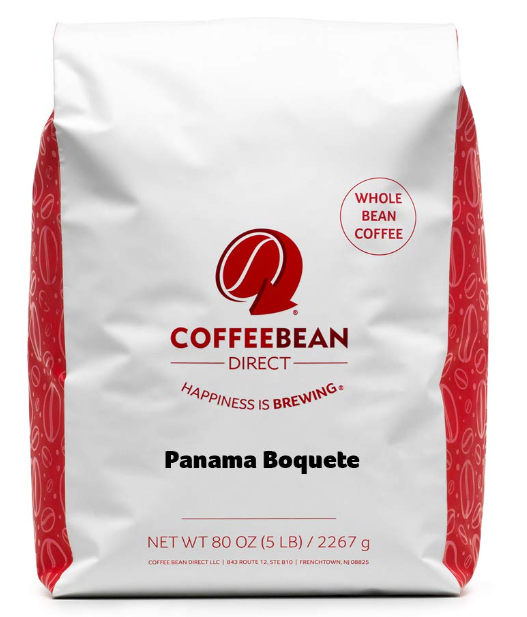
Who will enjoy Panama Boquete Coffee the most?
Coffee drinkers with a sweet tooth will love this flavor profile which includes notes of fruit, nuts and chocolate.
Aspiring black coffee drinkers, Panama Boquete coffee is naturally sweet and easy drinking!
Anyone who tends to prefer a lighter roast, MINUS the acidity.
Panama Boquete Coffee Profile
Roast: Light
Body: Light, buttery
Taste: Sweet, notes of fruit, nuts and chocolate
Fragrance: Intense, sweet, nuts
Aroma: Sweet, nuts, caramel
Sweetness: High, caramel-toned
Acidity: Low
Aftertaste: Smooth & sweet
Origin(s): Panama, Boquete
Species: Arabica
Cert(s):
Panama Boquete Coffee Review
Coffee from Boquete is the most highly regarded of Panama, it is the oldest coffee-growing region in Panama, located in the highlands of the Chiriqui province.
Due to the altitude, there is a constant mist forms, also called Bajareque, that allows the beans to ripen more slowly, giving them more time to develop fruity aromas and build up sweetness.
Due to its proximity to the dormant volcano Baru, the volcanic soil is rich in nutrients vital to the growth of coffee plants, giving it a better flavor as well.
All in all, this flavor profile is centered on sweetness! As soon as you open the bag, you are greeting with an intensely sweet aroma.
Jasmine, mango, citrus, nutty and caramel flavors are all savoured in the light and buttery body. Plus, lightly roasted, it's extremely low in acid, making it soft and perfect for any moment.
Note that the sweetness will stick around for the aftertaste.
#2. Hayman Coffee, 100% Panama Geisha Coffee Beans
[$89.99 / Bag; Amazon]
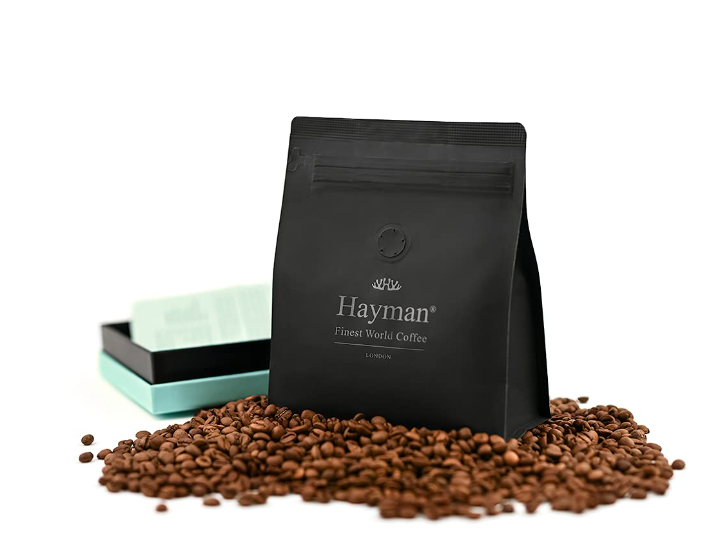
Panama Geisha Coffee Profile
Roast: Medium
Body: Light, buttery
Taste: Sweet, notes of fruit, nuts and chocolate
Fragrance: Intense, sweet
Aroma: Sweet, Exotic Mango, Mandarin notes, brilliant jasmine aroma
Sweetness: High, caramel-toned
Acidity: Low
Aftertaste: Smooth & sweet
Origin(s): Panama, Boquete
Species: Arabica
Panama Geisha Coffee Review
Hayman Coffee specializes in what you could consider the big names among coffee lovers and coffee snobs. Hawaiian Kona, Jamaica Blue Mountain, and Panama Geisha are all on offer.
Recognized for their 100% authentic Panama Geisha coffee beans, Hayman's Geisha offers a brilliant jasmine aroma coupled with exotic mango and mandarin flavor notes.
This is considered one of the best Panamanian Geisha, and is produced at Hartman's Estate in Chiriqui Province, a third-generation family farm in Santa Clara, growing Geisha at elevations of over 5,600 feet.
This is a sweet coffee, that is, it is neither sour nor bitter. It is similar to the taste of many teas, combined with its aroma - something so unique that some connoisseurs describe it as unbelievable, almost comparable to perfumes with notes of jasmine, rose and bergamot , making it very popular, especially in Asia.
As an added bonus, the elegant packaging of this coffee is a true reflection of the quality of the product. It's one of the best coffee gifts and an excellent addition to a gourmet gift basket.
#3. Fresh Roasted Coffee Ethiopia Organic Sidamo
[$89.99 / Bag; Amazon]
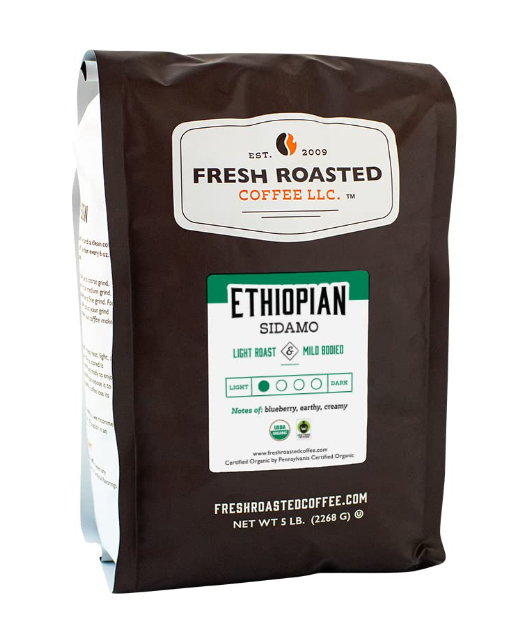
Who will enjoy Ethiopia Organic Sidamo Coffee the most?
Berry lovers; a prominent blueberry taste ties these organic Sidamo coffee beans together wonderfully.
Those who enjoy a coffee with some earthy and nutty character.
Fans of Ethiopian or African coffee that tend to prefer a light roast.
Ethiopia Organic Sidamo Coffee Profile
Roast: Light
Body: Creamy
Taste: Earthy, notes of blueberry, wine & slight almond
Fragrance: Earthy, wine-like
Aroma: Sweet, wine-like
Sweetness: Strong, fruity
Acidity: Balanced, berry-like
Aftertaste: Creamy, long lasting
Origin(s): Ethiopia, Sidamo
Species: Arabica
Cert(s): Single Origin, USDA Organic, Fair Trade
Ethiopia Organic Sidamo Coffee Review
Any new coffee has to be absolutely outstanding to grab our attention due to the vast array of excellent coffees from the Sidamo region of Ethiopia.
This Sidamo Coffee does just that by blending a multitude of tasty flavors perfectly Enclosed within a lusciously creamy body are flavors of earth and wine, but a prominently sweet blueberry flavor leads the pack.
All of this is balanced out by a berry-like acidity that does its job well. Your last sip will leave you with a long-lasting creamy sweetness in your mouth as an aftertaste.
Really, anyone who likes a good coffee with fruity flavors will love this coffee.
If you prefer a lighter roast, you must try these sweet blueberry flavored Sidamo beans!
#4. Volcanica Coffee Ethiopian Yirgacheffe Coffee
(Get Up To 4% Cash Back with Walmart)
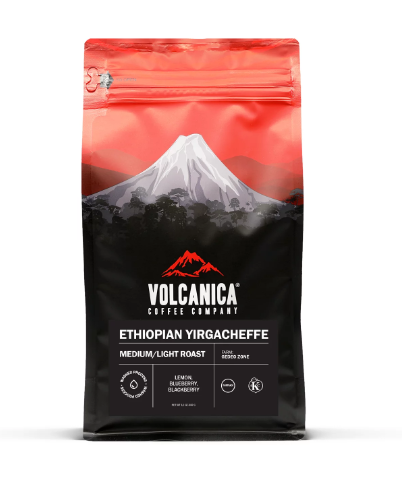
Who will enjoy Ethiopian Yirgacheffe the most?
Heard the hype of Yirgacheffe coffee beans? If you are unsure what to think, this is the coffee that will explain everything.
Fans of bright, fruit-toned acidity rejoice; it doesn't get any better than this.
Those who enjoy a complex cup; every aspect of this coffee is notable, yet exists in perfect harmony.
Ethiopian Yirgacheffe Coffee Profile
Roast: Medium
Body: Full, thick
Taste: Complex, notes of fruit and wine
Fragrance: Earthy, fruity, strawberry
Aroma: Earthy, fruity, cinnamon
Sweetness: Moderate, fruity
Acidity: Bright, fruity
Aftertaste: Resonant
Origin(s): Ethiopia, Sidamo, Yirgacheffe
Species: Arabica
Cert(s): Single Origin
Ethiopian Yirgacheffe Coffee Review
Volcanica’s Ethiopian Yirgacheffe Whole Bean Coffee is some of the best coffee you can find. Most of the product is gathered from wild coffee trees in the Yirgacheffe region of Ethiopia, and the rest is estate coffee, meaning it comes from a single farm or estate.
Growth of Yirgacheffe coffee beans occurs slowly, due to the strictly high grown environment. This allows more time for the delivery of nutrients from within the coffee tree and leads to a more developed flavor profile.
This medium roast has a sweet, sophisticated flavor to it. Made of 100% Pure Yirgacheffe Ethiopian coffee beans, it's medium-bodied with a bright acidity that is hard not to love.
You can also enjoy the real taste of the Yirgacheffe region that is characterized by tasty fruity and floral notes of ripe strawberry, pineapple, guava, and dark cocoa.
Volcanica is known for roasting fresh coffee beans and shipping them out faster than its competitors.
#5. Cooper's Ethiopia Oromia Coffee
[$74.99 / Bag; Amazon]
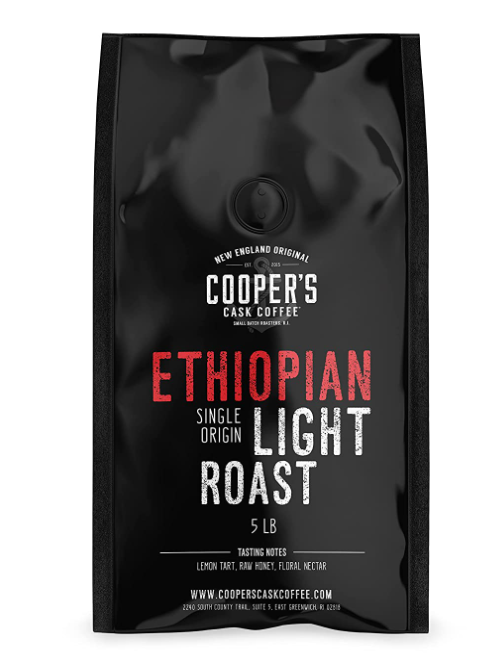
Who will enjoy Ethiopia Oromia Coffee the most?
Those who appreciate a vibrant acidity; this one offers a seriously divine sweetly tart bite!
Fans of floral and fruit notes; this microlot coffee is packed full of them to make a nice, complex cup.
Anyone that enjoys Ethiopian coffee and tends to enjoy a lighter roast profile.
Ethiopia Oromia Coffee Profile
Roast: Light
Body: Velvety & smooth
Taste: Complex, floral, fruit, lemon & honey notes
Fragrance: Complex, floral
Aroma: Aromatic, floral, lemon
Sweetness: Moderate, honey-like
Acidity: Vibrant, crisp, sweetly tart
Aftertaste: Crisp & resonant
Origin(s): Ethiopia, Oromia, Jimma, Gomma
Species: Arabica
Cert(s): Single Origin
Ethiopia Oromia Coffee Profile Review
This coffee is a wild and exotic dry processed (natural) Arabica coffee that is grown on small farms in the Oromia region (formerly Harrar) in southern Ethiopia at elevations between 1,400 meters and 2,000 meters.
Ethiopian Harrar coffee is generally highly rated and known for its winey and fruity, floral-toned acidity - bright in the cup, even intense - and tasting notes describe it with a rich and pungent, heady aroma that is wonderfully reminiscent of blackberries.
It’s an excellent brew that’s best enjoyed on its own. Try it via a pour-over coffee without any additives.
It has medium acidity and full body and a distinctive mocha flavour. This light roast provides a very note-worthy, sweetly-tart acidity that is more vibrant than a regular Ethiopian coffee.
The intense and varied flavor profile ranges from floral to fruity notes, and is balanced with a honey-like sweetness.
#6. Volcanica Coffee Guatemala Peaberry
[$18.99 / Bag; Amazon]
Who will enjoy Guatemala Peaberry Coffee the most?
Fans of chocolate and nut oriented taste profiles will love this rich, creamy cup of Santa Barbara coffee.
Those who enjoy a complex, room-filling, chocolate aroma and a flavor that follows suit.
Anyone that has yet to taste what the volcanic soils of Antigua has to offer.
Guatemala Peaberry Coffee Profile
Roast: Medium
Body: Full & creamy
Taste: Rich, sweet, notes of nut & chocolate
Fragrance: Complex, chocolate
Aroma: Intense, nutty & chocolate
Sweetness: Moderate, candy-like
Acidity: Vibrant
Aftertaste: Sweet & sustained
Origin(s): Guatemala, Antigua, Santa Barbara
Species: Arabica
Cert(s): Single Origin, Fair Trade
Guatemala Peaberry Coffee Review
Volcanica has multiple Guatemalan coffee offerings, so you’ll see them show up again later in the list.
Peaberry coffee is a delicacy — a specialty coffee to rival any competitor. Peaberries are a rare mutation in the coffee plant which results in a sweeter, more flavorful coffee bean.
This Volcanica’s Guatemalan peaberry coffee is grown in the highlands of Antigua, a region nestled between two volcanoes. And the nutrient-rich soil and high elevation give these medium roasted Guatemalan beans an inherent sweetness with a punch of bright flavor.
Overall, If you love Antigua coffee and want to take it up a notch, this medium roast single-origin might be the right Guatemalan coffee for you. This Antiguan peaberry coffee has a smooth, rich body and a deliciously strong fragrance with notes of brown spice and cocoa. You’ll notice a subtly smoky and spicy overtone and a uniquely sweet finish. The flavor is clean, bright, and balanced and has notes of juicy strawberries.
#7. Volcanica Guatemala Antigua Santa Barbara Coffee
[$17.99 / Bag; Amazon]
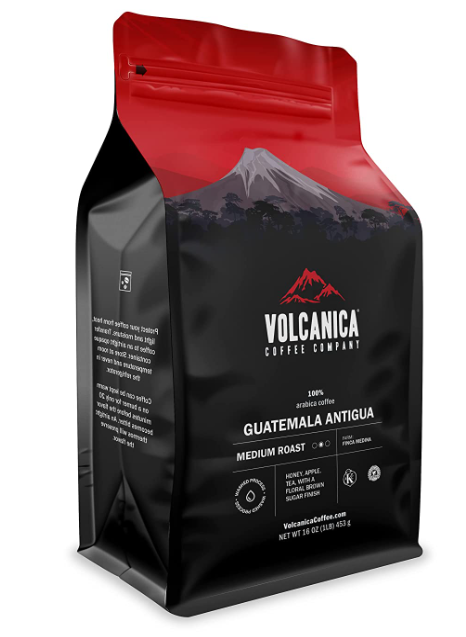
Who will enjoy Santa Barbara Coffee the most?
Fans of chocolate and nut oriented taste profiles will love this rich, creamy cup of Santa Barbara coffee.
Those who enjoy a complex, room-filling, chocolate aroma and a flavor that follows suit.
Anyone that has yet to taste what the volcanic soils of Antigua has to offer.
Guatemala Antigua Santa Barbara Coffee Profile
Roast: Medium
Body: Full & creamy
Taste: Rich, sweet, notes of nut & chocolate
Fragrance: Complex, chocolate
Aroma: Intense, nutty & chocolate
Sweetness: Moderate, candy-like
Acidity: Vibrant
Aftertaste: Sweet & sustained
Origin(s): Guatemala, Antigua, Santa Barbara
Species: Arabica
Cert(s): Single Origin, Fair Trade
Guatemala Antigua Santa Barbara Coffee Review
In Antigua, the Santa Barbara estate sits between two large volcanoes. These fair-trade, single-origin Santa Barbara beans show why Guatemalan coffee is considered one of the best in the world.
A complex aroma of chocolate and nuts sets the tone for this rich, creamy cup. Both nut and chocolate combine with a candy-like sweetness and vibrant acidity to make this unique profile. A sweet, lingering aftertaste will have you craving a second cup of this premium product. If you haven’t tried coffee from Antigua before, we suggest that you do so promptly!
#8. Java Planet Guatemala Huehuetenango Coffee
[$16.14 / Bag; Amazon]
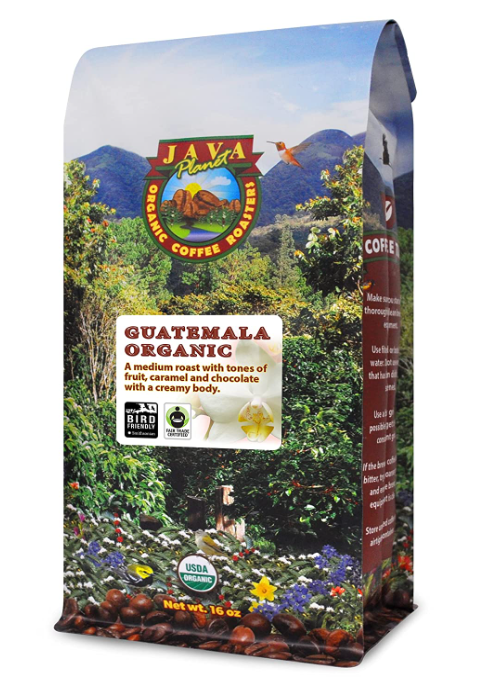
Who will enjoy Guatemala Huehuetenango Coffee the most?
Anyone seeking a low acid coffee, this delicious organic option is easy on the stomach!
Fans of caramel and fruit; you'll love the sweetness this flavor profile offers.
Those who have yet to experience a Guatemala Huehuetenango coffee, you are in for a treat!
Guatemala Huehuetenango Coffee Profile
Roast: Medium
Body: Creamy & smooth
Taste: Balanced, notes of fruit, caramel & slight chocolate
Fragrance: Fruity, slight chocolate
Aroma: Fruity, caramel
Sweetness: Moderate, caramel-like
Acidity: Low, backgrounded
Aftertaste: Clean, lingering
Origin(s): Guatemala, Huehuetenango
Species: Arabica
Cert(s): Fair Trade, SMBC Bird-Friendly, USDA Organic
Guatemala Huehuetenango Coffee Review
Java Planet's Guatemala Huehuetenango coffee showcases what the Northern highlands of Guatemala has to offer. Java Planet is known for their amazing organic coffee beans.
It has the following certifications; USDA Organic, Fair-Trade, SMBC Bird-Friendly and 100% chemical, pesticide and GMO-free. These beans are environmental friendly, all-natural and still manages to taste great!
This delicious coffee contains a mouth-watering caramel-like sweetness, as well as notes of fruit and chocolate, all wrapped in a nice creamy body. The acidity is low, while the flavor is high. Do not miss out on this one.
#9. Volcanica Coffee Kenya AA
[$23.99 / Bag; volcanicacoffee.com]
Who will enjoy Kenyan AA coffee the most?
Fruit and wine lovers are sure to enjoy the flavor profile and vibrant acidity in this Kenya AA coffee.
Anyone that wants to try a World's Best Coffee contender without breaking the bank!
Coffee drinkers with a sweet tooth, Kenyan coffee is naturally very sweet.
Kenyan AA Coffee Profile
Roast: Medium
Body: Heavy
Taste: Rich, sweet, notes of wine, citrus and berries
Fragrance: Intense, sweet
Aroma: Sweet, fruity
Sweetness: High, Fruity
Acidity: Vibrant, wine-toned
Aftertaste: Dry, wine-toned
Origin(s): Kenya, Nairobi
Species: Arabica
Cert(s): Fair Trade, Single Origin
Kenyan AA Coffee Review
Volcania Kenya AA is one of the most prestigious coffee brands in the world because they directly pack the best, purest and highest grade coffee beans from East Africa including Kenya.
This one has everything that you could want or expect from a Kenya AA coffee. The vibrant wine-toned acidity that Kenya is famous for is the defining feature of this coffee. An intensely sweet and fruity aroma hints at the citrus and berry flavor notes to come.
Its consumers describe it as lightly tart in structure with a crisply sweet edge and gently drying finish.
This is a must try for any coffee lover, especially if your preferences tend toward brighter, fruitier beans!
#10. Hawaiian Kona Estate Coffee By Koa Coffee
(Get Up To 10% Cash Back with Koa Coffee)
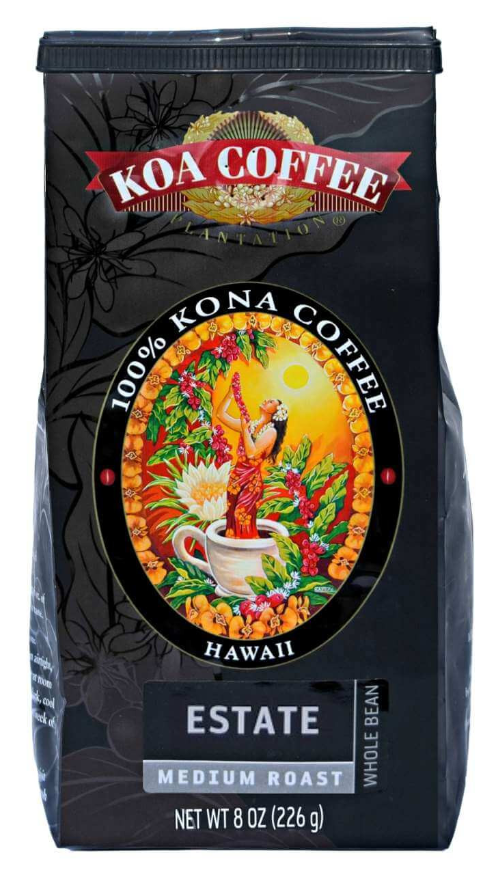
Who will enjoy Kona Estate Coffee the most?
Kona Estate coffee is perfect for coffee snobs - er, enthusiasts. It doesn't get much better than this.
Experienced coffee drinkers are most likely to appreciate all of the intricacies of this brew.
Anyone looking for a special occassion coffee, this one is truly a luxury.
Hawaiian Kona Estate Coffee Profile
Roast: Medium
Body: Silky smooth
Taste: Rich, with floral, cocoa, nutty & herbaceous notes
Fragrance: Sweet, herbaceous
Aroma: Sweet, cocoa
Sweetness: Moderate
Acidity: Balanced, vibrant
Aftertaste: Smooth as can be
Origin(s): United States, Hawaii, Kona, Captain Cook
Species: Arabica
Cert(s): Single Origin
Hawaiian Kona Estate Coffee Review
Due to Kona coffee's high reputation, there are a large number of similar products on the market. It's important to make sure that the Kona beans you buy are actually legal and made up of 100% Kona beans! This coffee is silky smooth, with rich flavors of vanilla, nuts and chocolate. Vibrant but balanced acidity adds a layer of complexity to the cup without the signature smooth, mellow flavor expected from Kona coffee. Assuming you want the real deal instead of a 10% Kona blend, Koa's Kona Estate Coffee is probably the best option available right now!

Extrabux is an international cashback shopping site, offering up to 30% cashback from 10,000+ Stores!
Squarespace, SkinStore, MATCHESFASHION, The Wall Street Journal, NordVPN, Visible, Armani Exchange, Sam's Club, PUMA, AliExpress, Card Cash, NET-A-PORTER, Udacity, Udemy, Selfridges, LOOKFANTASTIC, Vimeo, Coach Outlet, lululemon, PrettyLittleThing, Booking.com, Ripley's Aquarium, iHerb, Groupon, etc.
Join to get $20 welcome bonus now! (How does Welcome Bonus work?)
Recommendation
-
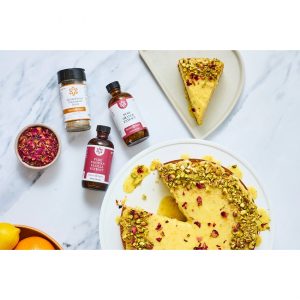
18 Best Online Stores to Buy Authentic Spices from India, China, Mexico, Turkey & More (2025 Guide)
-

Where to Watch Chinese Short Dramas with English Subs: The Best Free and Paid Apps & Sites (2025)
-
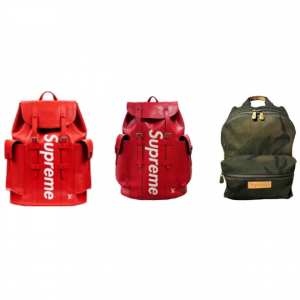
Supreme LV Backpack Real vs. Fake Guide 2025: How Can I Tell If It Is Original?
-

U.S. Polo Assn. Cashback, Coupon Codes, and Savings Guide
-
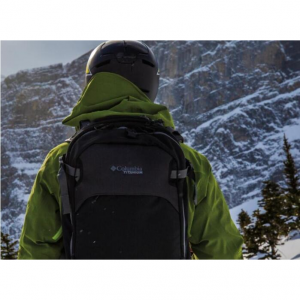
The North Face vs. Columbia vs. Patagonia: Which is the Best Outdoor Gear Brand?
Up to 8% Cashback!

